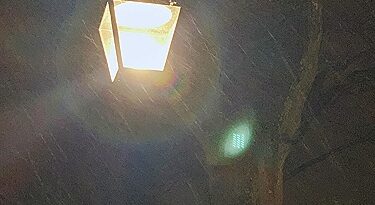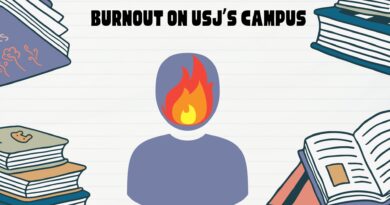Student and Faculty Interviews Reveal Wi-Fi Struggles for Resident Students
Written by Khang Dang
The Wi-Fi has been a particularly interesting topic when it comes to the activities on campus, especially regarding the academics of students and staff alike. As of recent, the internet connection has been a big discussion among campus residents. Upon further exploration with the campus, there was a mixed response between students who were residents and others who were commuters when it came to the connection.
Residents talked about how the internet connection has been really off and on in the dormitories. When asked about the connection, one of the residents had described it to be: “Okay. Certain parts of the campus, especially in the residential buildings, have been inconsistent.” They explained that it is disruptive when it comes to getting work done as it takes time for websites to load extraneously, and it requires the disconnection and re-connection of Wi-Fi to allow it to even work. Additionally, when it comes to leisure time, it is difficult to send texts from campus to outside due to the abnormality of the connection.
However, when interviewing a professor, he described that he has not had many issues other than the fact that he sometimes has to sign in and out. But as of recently, he describes that the Wi-Fi has not been poor on his side, and he could not think of any instances where it has failed him.
When interviewing commuters, they described that the only time they had an issue with the Wi-Fi was on their first day, but it was quickly resolved once they had taken a trip to IT. Another commuter described that the internet had worked just fine for him, and there had been no trouble when it came to the connection whatsoever.
An interview was also conducted with the director of IT, Robert King. When questioning the director, he mentioned that there was a big difference from this year in comparison to previous ones, explaining that: “This year has actually seen less complaints than previous years overall, wireless complaints included.” Additionally, the director explained how many of the issues result from the beginning of the semester where returning students set up old accounts and end up locking themselves out. In contrast, there is little to no mention of connection issues regarding the actual strength of the Wi-Fi itself.
King described that a big change to the Wi-Fi is coming up. He mentioned that they are currently carrying out a plan of theirs that includes: “. . .replacing Wi-Fi Access Points with more up-to-date ones and centralizing the management of these access points onto a single cloud controller system.” He explained how there will be an elimination of the cost of maintaining the wireless network, allowing for expansion to be much more prominent and simpler when it comes to solving any issues. To add onto this resolution, he also gave some tips and tricks in the case that any students were receiving connection issues. The first is to reboot the device they are having an issue with since “this clears old data from memory and resets any drivers.” Then, they have to check their account by logging in to https://myoffice.usj.edu to make sure their account is not locked or disabled in any way. Then, come to the ServiceDesk in the Library or call their number at (860) 231-5310. The last thing he mentions is to “reboot often and install patches regularly.” IT is currently doing their best to find a way to ensure optimal efficiency for every student.
There is a big disconnect when it comes to the questioning of commuters and residents as well as the students in comparison to the staff. But it shows a larger pattern that residents seem to have more trouble with the internet than commuters do, and it could be the simple nature of the buildings that they are in. The residential halls may be something to investigate when it comes to the strength of the Wi-Fi, as the other buildings such as Lynch, McDonough, and Mercy are supplied with the connection to withhold numerous classes. Altogether, it seems to be that the Wi-Fi’s problematic behavior is much more prominent in the residential halls than it is for the rest of the campus.



